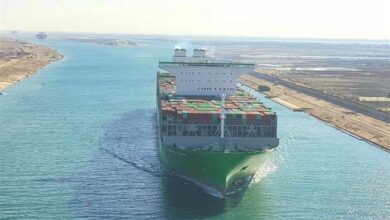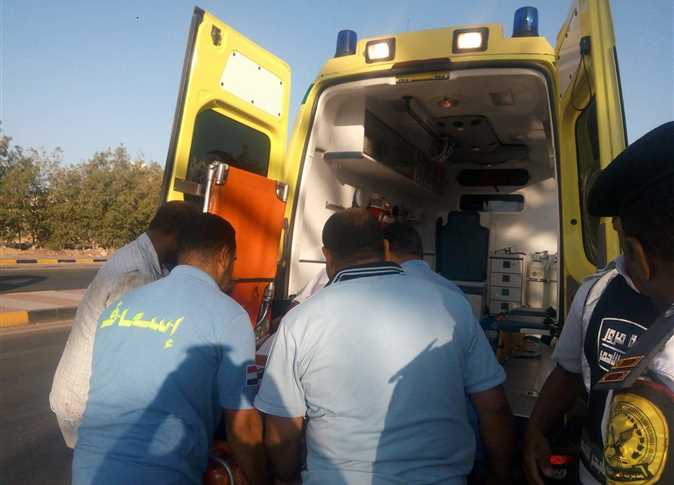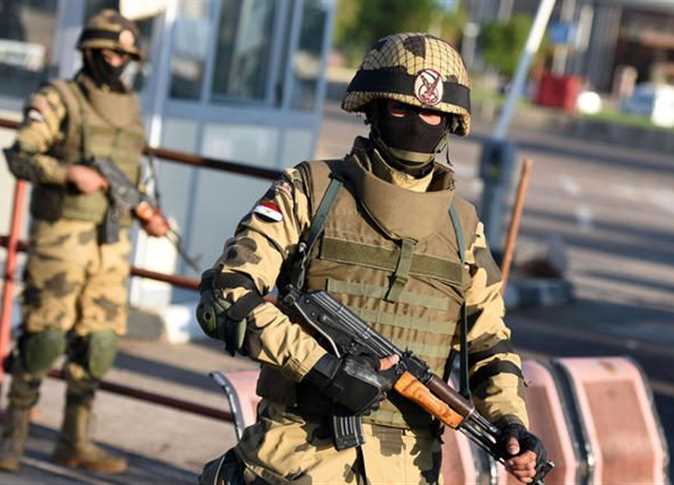SUEZ – Egypt was on edge on Tuesday as protesters in Suez made their way to the Suez Canal, sparking fears they might affect operations of Egypt’s most vital piece of infrastructure.
Suez Popular Committees – a united front of groups initially formed to protect neighborhoods, protests and public facilities – are on full alert in trying to direct the protests in a peaceful manner.
“We are fully participating in the march to the canal and will ensure the safety of its facilities at the same time, although it probably won’t be necessary,” said Ahmed Ali, the general leader of the Suez popular committee group.
Gaining grassroots support in a city like Suez requires much more than moving religious slogans, convincing political discourse or manipulative media propaganda. Street credibility is a must, and popular committees have that. The city has been synonymous with resistance and struggle in modern Egypt since the English occupation of the canal in the 1940s, and during this revolution it saw the first martyr fall. Here, actions speak louder than words.Popular committees succeeded in becoming one of the most organized and trusted organizations in Suez since the 25 January revolution. With therevolution heating up again, their roles are reemerging as militant activists and social organizers.
“One of our main advantages is that we are connected in the streets and active in our services, and we know Suez’s thugs personally. This helps us protect the areas,” said Shaarawy Mohamed, a 28-year-old organizer of the Suez Popular Committees.
When Suez has a rally, members of popular committees blend in as eager youths wanting to be part of the revolution. However, whenever an issue arises in which an authority is required to speak, they break out their laminated IDs, providing proof they are a part of what has become an elite Suez institution. Now they patrol the city’s main Arbaeen Square with the authorities to solve conflicts, search for weapons, and help determine the course of protests. Protests are on the rise again, especially with anger toward the prime minister’s recent speech. Protesters complain the speech didn't address the city’s main concerns or the topic of the martyrs.
The idea for the IDs came from the military, which wanted to know who to talk with, Mohamed said.
These groups have only grown and become more organized since the 18-day uprising, when they emerged.
Initially, just as in the rest of Egypt, the canal city’s popular committees were fragmented groups formed during the height of the revolution’s security vacuum to protect neighborhoods. In many cases around the country, these groups decided to make use of their spontaneous organizations to engage in charity and political activism. The difference with Suez is that here they evolved before others and became a serious force to be reckoned with. They, not only maintain peace in Arbaeen Square, but they wield more political power due to their grassroots nature and ability to reach less affluent citizens.
Following Mubarak’s ouster, Suez popular committees did their own monitoring of markets to make sure shopkeepers were not abusing the lack of oversight and security to sell staple goods at exaggerated prices. They also protected public facilities from looters and bandits.
“We also took it upon ourselves to collect some of the arms that were stolen from the police stations and hand them over to the military police,” said Sabry Seyam, a 37-year-old Popular Committee member.
Some committees even transformed a small square in the city to a Hyde Park – the name they gave to it – for artists to produce and display work.
The first real launch of a unified and coordinated popular committee movement in Suez happened at one of the few events in Egypt that attracts a heavy crowd – a football match.Zamalek was playing Petrojet – the only local team playing at the highest level of the sport – on 7 March. The head of the Petrojet events organization decided to have a popular committee to provide security services during the match, since the police were still in the nascent stages of their “return” to the streets.
All of a sudden, 100 volunteers came to the game, and the group has continued growing since. Now, it has 850 card-holding members, each of which undergoes interviews with a panel of four individuals from the group's subcommittee charged with vetting applicants.
“We need to make sure that none of the prospective members has a political agenda or is tied to any organizations,” said Ahmed Ali.
He says the rule is to reject anyone who may act impartially, as groups have intentionally stayed clear of any partisan agendas as a way to maintain their legitimacy with the people of Suez.“People in this city don’t like following a specific group or way of thinking. No one group is able to individually mobilize the entire city based on ideology, the people wouldn’t stand for that,” said Ahmed Zakariya, a member of the Muslim Brotherhood in Suez.
Zakariya does think the Brotherhood should take some credit in helping form the committees, as they helped lend mosques and loudspeakers as tools to assemble youths for protecting neighborhoods.
Right now, they consider themselves the main liaison between the people of Suez and the military police. “The military have been conferring with us for the canal protest, and we’re assuring them it would not affect canal facilities,” Mohamed said.
They also see themselves as the main liaison between the myriad movements in Suez due to their apolitical nature.
When protests died down after Mubarak’s resignation on 11 February, the group diverted its activities toward social projects. However, they also helped lead calls for change on many vital issues.
In April, they participated in campaigns to bring down corrupt municipal governments dominated by the National Democratic Party. Their role in pushing the ruling military council to eliminate municipalities led one paper to write: “The war against the municipalities begins in Suez… as usual.”
“There was a period when we started thinking about trying to play a part in running the municipalities. These days, current events and sit-ins have diverted our attention away from that,” said Mohamed.
In advance of the 8 July sit-in, members of popular committees took to cafes, encouraging patrons to head to Arbaeen Square to protest the slow pace of reform and to stand with martyrs' families in protesting the court’s decision to release suspected killers.
Suez has remained at the vanguard of the revolution. It saw the first martyr fall, and generally lived up to its reputation as a center of resistance. Other cities in Egypt have begun to mimic the city in its popular committee organization. With a new sit-in in effect, restless martyrs’ families, plans for civil disobedience, and concurrent issues with lacking security, the coming months may see them play an even more important role.




